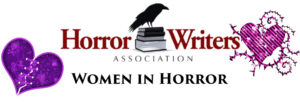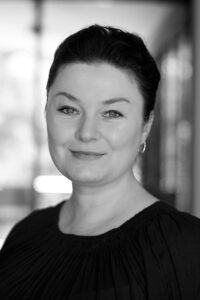

Pamela Jeffs is an Australian horror author with a love for writing short fiction. Pamela has published five short story collections, co-authored an anthology with Aiki Flinthart titled ‘The Zookeeper’s Takes of Interstellar Oddities’ and published 80+ short stories in various national and international magazines and anthologies including ‘SNAFU: Dead or Alive, by Cohesion Press and ‘Lawless Lands: Tales from the Weird Frontier’ by Falstaff Books. She has been shortlisted for multiple awards throughout her career including numerous Aurealis Awards, Ditmar Awards and has been noted in the Writers of the Future Competition. For more information, visit her at www.pamelajeffs.com.
What inspired you to start writing?
I can’t remember what first inspired me to write, I only know that I have been doing it for as long as I’ve known how to write words. Perhaps it has something to do with growing up in rural Australia and being home-schooled for some of that time. I was allowed a lot of freedom and loved both reading and creating story worlds to lose myself in. My mother, a poet herself, especially encouraged my creative writing. I haven’t ever looked back.
What was it about the horror genre that drew you to it?
It was the idea that horror as a genre looks at the human condition. This really appeals to me. I believe the most powerful stories are the ones that hold a mirror up to who we are. Horror is an author’s way of saying, “Look at this! Heed the message and work harder to be better.”
Do you make a conscious effort to include female characters and themes in your writing and if so, what do you want to portray?
I like to include all genders in my stories because comparative perspectives on the same issues are important. But my female characters are never secondary. I believe their inclusion provides a sharp focus to stories, lending gravity to the messages I want to portray. For me, these messages are about inner strength and survival. I think this stems from my own family history where I’m told my familial matriarchs survived years of grief, oppression, and poverty. As such, it is important for me to portray the strength of women in my works and the message that no matter how broken we can be, we are absolutely powerful—that our scars are armour.
What has writing horror taught you about the world and yourself?
I didn’t specifically chase horror works when I was young, but I was exposed to them. I particularly remember watching Stephen King’s IT as a young girl and being terrified of red balloons for some time. Now, as an adult, I see the purpose and the message behind the horror. Writing horror now helps me make sense of the world. I’ve learned that this genre is not so much about making people feel scared in the moment, but is more a preparatory device showing us how to survive the real horrors we sometimes face. Writing horror has taught me not to shy away from reality, but to embrace and process the things that I fear.
How have you seen the horror genre change over the years? And how do you think it will continue to evolve?
As a young adult, I was drawn to various types of sci-fi/horror fare. Movies and TV shows like The Sphere, The X-Files, The Mummy, etc. Dark, sometimes fluffy, but always horror held at arm’s length. Horror has become so much more. With the advances in visual effects for games and movies, everything is so much more real, much more immediate. Where The Sphere was horrific, it was still comfortably far-fetched. The X-files were character-driven, but always only hinted at horrific themes. But now, horror has become more intimate. It forces us to look at and recognise the very best and worst traits of ourselves.
How do you feel women have been represented thus far in the genre and what hopes do you have for representation in the genre going forward?
I always remember the clichéd view of the woman screaming in terror as the dastardly monster approaches, or Dracula leaning in to suck the blood from some hapless maiden’s neck. Women in horror were story devices that horrific things happened to. I think that has changed in recent times. Women characters are now represented with agency, perhaps this is because more women are writing these stories, and are showing themselves not to be wilting flowers, but as true warriors, fearlessly carrying their torches into the darkness. I think this is a wonderful thing and would like to see it continue. I would also like to see more representation of older female characters, it’s sometimes said that once external beauty fades, a woman becomes invisible to the world. In my opinion, that is just when they are getting started and their stories are becoming all the more interesting.
Who are some of your favourite female characters in horror?
My favourite horror characters come mainly from movies and television. I’m a huge fan of Dana Scully from The X-Files—a tough, brilliant scientist with a no-nonsense attitude. I also like Evie from The Mummy— a librarian who at first seems fragile but surprises you with her thirst for adventure and courage to face the dark forces of evil. But of course, the most iconic one for me is Ellen Ripley from Aliens—a kick-ass mother who has no problem eating cosmic horror offerings for breakfast.
Who are some women who write horror you recommend our audience check out?
There are so many talented women writing horror at the moment. As an Australian, I’m going to promote my favourites here on the Australasian scene and as such recommend you don’t go past authors like L. E. Daniels, Geneve Flynn, Lee Murray, Kaaron Warren, Angela Slatter, and Claire Fitzpatrick. Some of them may look mild-mannered, but don’t be fooled! Their minds go to dark places and it’s wonderful.
What is one piece of advice you would give horror authors today?
My advice would be to remain authentic. Be fearless. Be empowered. Don’t be afraid to dig deep and explore the things you fear the most. Make your stories address, in some way, the human condition. Be a mirror to society. Show us your unique experience of fear, how to rise above it, and have fun doing it!
And to the women who write horror out there who are just getting started, what advice would you give them?
If you are driven to write, starting out is exciting and rewarding. As you learn your craft, the storytelling will become harder to do because once you know the rules, you become better and more critical of yourself. My advice is that if writing is your calling then stay the path. Being a storyteller can be difficult and sometimes thankless. Your road to success won’t necessarily be straight but if you are dedicated, you will forge a path as only you can. Remain persistent. But most of all, take advantage of the generosity of our horror writers’ community. In my experience, they are a warm-hearted tribe, always willing to help lift you up and celebrate the successes you will achieve.

